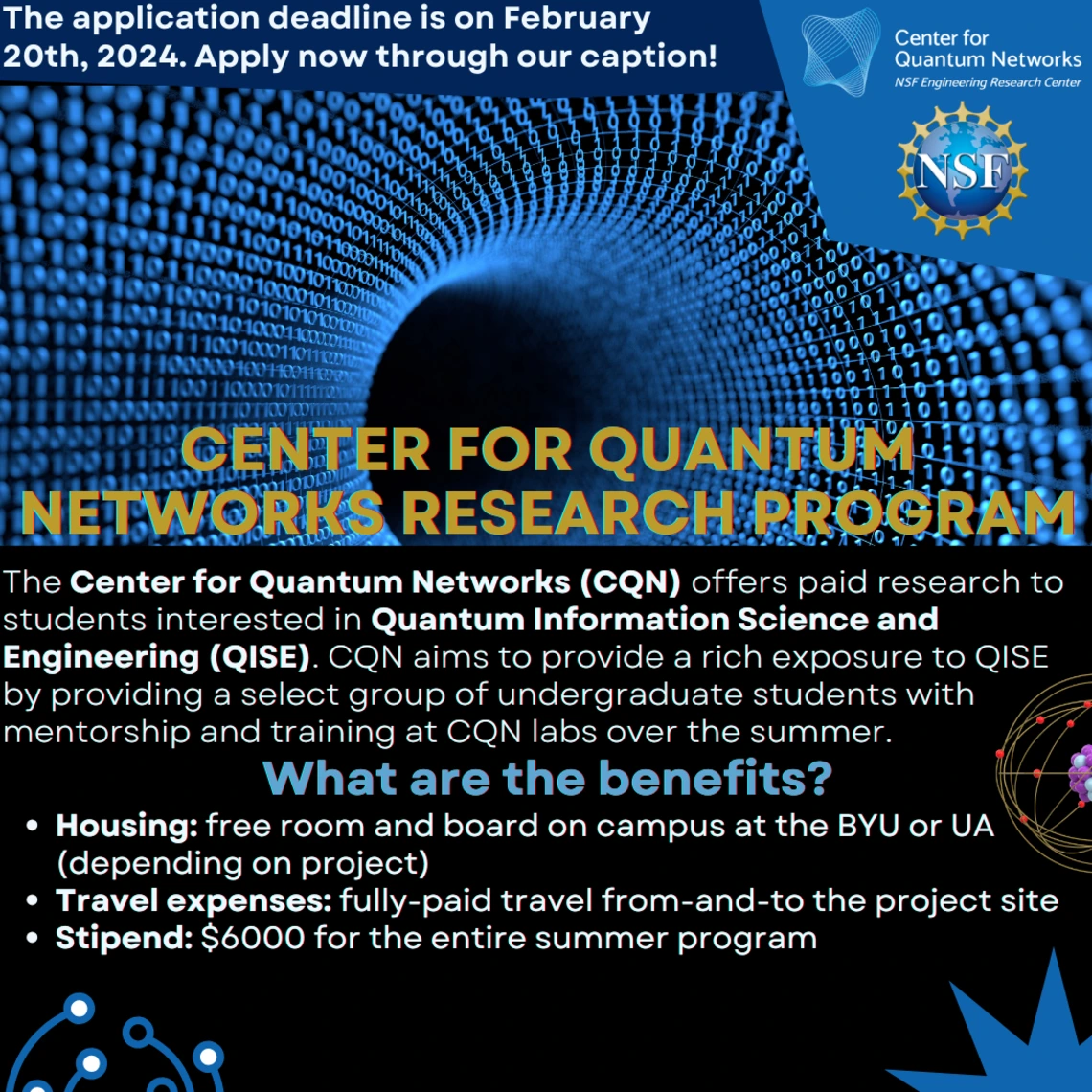
When
Interested in engineering, math, physics, and/or computer science? Want a fully-paid summer research experience at a top-ranking lab?
The Center for Quantum Networks (CQN) offers paid summer Research Experiences for Undergraduates (REU) to students interested in Quantum Information Science and Engineering (QISE) over the course of 10-weeks.
CQN aims to provide a rich exposure to QISE by providing a select group of undergraduate students with mentorship and training at CQN labs over the summer. The program enables students to work on specific projects under the guidance and mentorship of faculty members and graduate students or post-doctoral mentors. In addition to their research, students will participate in both in-person and virtual events such as seminars/lectures, professional development workshops, and social activities. At CQN we value how diverse backgrounds and experiences brings innovation and new ideas to quantum research. This program is designed to be a welcoming and supportive environment for all students traditionally underrepresented in STEM.
The program will run from June 3 – August 10 for the summer of 2024.
What are the requirements for each project offered?
- Brigham Young University – Dr. Ryan Camacho: No previous experience is required, but skills that would be useful include programming in python, knowledge of electromagnetics and quantum mechanics, lab experience, math/numerical methods etc.
- University of Massachusetts – Amherst – Dr. Don Towsley and Dr. Stefan Krastanov: Strong programming and software development skills are requested, as well as basic knowledge on the description of quantum hardware.
- The University of Arizona – Dr. Chaohan Cui: Project 1 preferred skills in 3d modeling or 3d printing, experience in handling mirrors and lenses, someone who has done some undergraduate optical lab. Project 2 preferred skills: Python or robotics. Project 3: The student will need some programming experience, any language is fine but python is preferred due to the viability to interface with the lab hardware most easily. MATLAB is also viable but will require more work. The most important programming skill will be optimization. Knowledge of electrical engineering, specifically around RF signal generation, amplifiers, and digital signal processing will be beneficial but is not required. Knowledge of optical systems, specifically fiber optics will be beneficial but is not required.
- The University of Arizona – Dr. Matt Eichenfield: Experienced with programming (Python preferred), College-level calculus, Comfortable with Microsoft PowerPoint and Word (or equivalent software), Eager to learn new skills and work in a team to achieve results.
- Massachusetts Institute of Technology – Dr. Dirk Englund: None specified.
-
Harvard University – Dr. Marko Loncar: None specified.
What are the benefits?
- Summer Stipend: $6000 over 10-weeks (aprox. $600/week).
- Housing: Free on-campus housing will be provided, depending on the location of your college.
- Travel Expenses: Paid round-trip travel to REU lab post.
Want to apply? Please apply through the REU application. The application deadline is on February 20th, 5:00 PM AZ Time.
Questions? Reach out to the UA REU Coordinator at nfo@cqn-erc.org.

